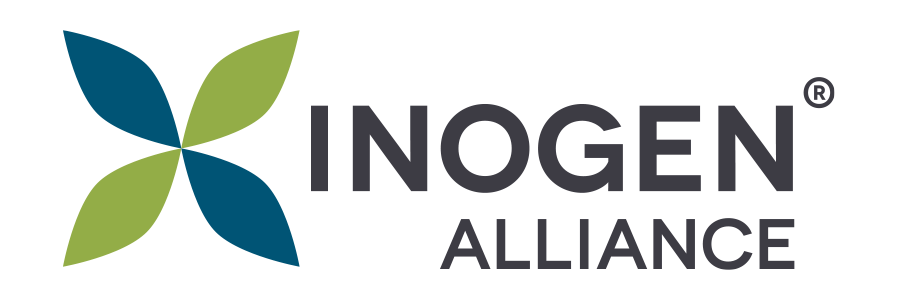How Sustainability Risks Change Along the Sustainability Journey

How Sustainability Risks Change Along the Sustainability Journey
The famous author and researcher, Bob Willard, identified five distinct stages of corporate sustainability. These stages are pre-compliance, compliance, “beyond compliance”, integrated strategy, and purpose/passion. Each stage represents a unique type of business culture around sustainability in your organization. Beyond the cultural aspects, the risks involved at each stage change too. In this post, we explore how sustainability risks change at each stage of your company’s sustainability journey and we’ll identify key priorities for you to focus on at each stage.
Robert Szücs-Winkler, CEO of denxpert says: “Strong compliance and sustainability programs require expert guidance, dedicated staff members and a reliable solution provider. After a few years into this process, they usually realize they do not have the time or expertise to tackle all the challenges facing them and are looking to benefit from the best practice of the consultants. Whether you make car parts, mine ore, or build infrastructure, you must focus on your core business and outsource tasks outside of your expertise.”
Stage 1: Pre-Compliance – At this stage, your organization is not compliant with appropriate regulations, and may not be doing anything for sustainability at all. The organization is looking for loopholes, and the material risks are mainly related to regulatory enforcement. Organizations that are sufficiently noncompliant may be punished with fines, they may suffer significant damage to their brand, and in the most egregious cases, the individual officers of the company may face civil lawsuits or criminal charges. It is critically important to avoid non-compliance, as penalties and expectations are increasing quickly. This is even more complicated for organizations with international operations, as regulations and enforcement practices for environment, health and safety, and sustainability vary widely by country.
Stage 2: Compliance – At this stage, the primary focus of the sustainability initiatives within the company is regulatory compliance. Primary risks are largely related to regulatory enforcement, and the company needs regulatory registers to ensure that their sustainability initiatives are up to date with changing regulations. The required sustainability requirements vary widely by country and are changing quickly, and the specific downside risk of noncompliance is very dependent on the individual context. Thus, the best practice is to implement a regulatory register, so the company is always up to date. A regulatory register is a comprehensive list of appropriate regulations related to a given jurisdiction or topic and implementing such a register properly requires intimate knowledge of local regulations.
Stage 3: Beyond Compliance – At this stage, the company starts to address environmental risks that could directly affect corporate operations. There is an environmental nexus to many aspects of corporate operations, including but not limited to energy and water usage and the effects of climate on agriculture. Companies in this stage start to develop a more comprehensive understanding of how these risks are directly related to their input costs as well as stakeholder value or perception of the company. Going beyond compliance could also include looking beyond the corporations’ own operations and up into their supply chain and vendors for a more holistic view on environmental risks.
Stage 4: Integrated Strategy – In this stage, a company is integrating sustainability and ESG at a higher strategic level. ESG includes environmental, social and governance topics. Companies in this stage must address the impact of ESG on their overall enterprise value, on the impact of nonfinancial material risks on their brand perception and bottom line, and how to ensure that all stakeholders are aligned around their sustainability and ESG goals to ensure that their initiatives are successful. When a company has hit this stage, the social and governance aspects of ESG are considered as seriously as the environmental risks. This is where a company will focus on robust reporting and frameworks and ensuring their story is being communicated to diverse stakeholders.
Stage 5: Commitment and Passion – In this stage, a company has positioned itself successfully as a sustainability leader and is using itself to drive change in the world. Many of the sustainability risks at this point have been mitigated appropriately, and the company simply needs to ensure that it’s staying relevant in today’s uncertain times and has a good framework for future goals. The company has likely implemented robust change management practices to allow the organization to adapt to any new situation with resiliency, and the company is known as a thought leader.
This is an overview of how your sustainability risks change as you move through the stages of the sustainability journey and how they should be incorporated into your organization’s risk management plan. In the upcoming webinar by denxpert, you can learn more about the sustainability journey. Our short documentary highlights some interesting case studies from our Alliance showing how we help our multinational clients meet their sustainability goals.
About Inogen Alliance
Inogen Alliance is a global network made up of dozens of independent local businesses and over 5,000 consultants around the world who can help make your project a success. Our Associates collaborate closely to serve multinational corporations, government agencies, and nonprofit organizations, and we share knowledge and industry experience to provide the highest quality service to our clients. If you want to learn more about how you can work with Inogen Alliance, you can explore our Associates or Contact Us. Watch for more News & Blog updates here and follow us on LinkedIn.

